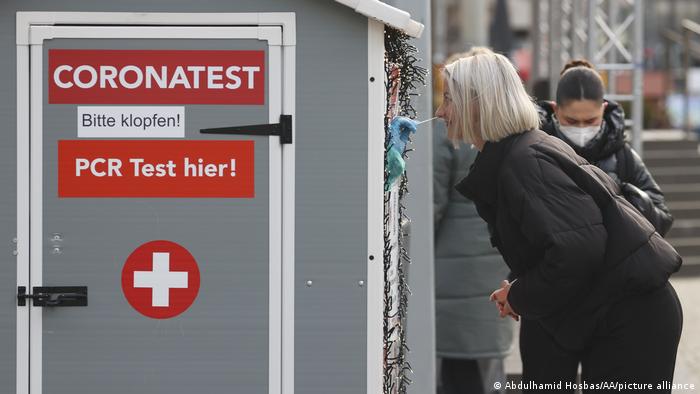
Germany reported 112,323 new coronavirus cases on Wednesday, the latest new 24-hour record and the first daily tally north of 100,000. The national disease control body, the Robert Koch Institute (RKI), published the figures early in the morning.
The country's weekly incidence rate has now reached 584.4 new infections per 100,000 people over a seven-day period, the RKI reported.
The institute registered 239 deaths connected to COVID, a reduction from the 384 reported on the previous Wednesday.
The hospitalization rate rose, but only slightly, to 3.17 people per 100,000 per week, versus 3.13 one week ago.
Omicron takes hold
The omicron variant was comparatively slow to start spreading in Germany by European standards, but in recent weeks, the country has experienced an increase in case numbers similar to those seen in several nearby countries such as France, the Netherlands and the UK.
France, for instance, with roughly 15 million fewer inhabitants, reported more than 460,000 cases on Tuesday. Italy, with almost 60 million people to Germany's roughly 83 million, logged more than 228,000.
As of this week, omicron accounts for over 70% of new cases across Germany.
Health Minister Karl Lauterbach said on RTL television late on Tuesday that he expected the latest omicron-fueled wave to peak around the middle of February.
Germany has tightened restrictions in recent days to curb the spread of the virus, limiting access to bars and restaurants to those who have received their booster jabs or citizens who are tested, in addition to already being fully vaccinated or recovered.
On Monday night, tens of thousands of people took to the streets across Germany, as people vented their frustrations over the country's coronavirus measures.